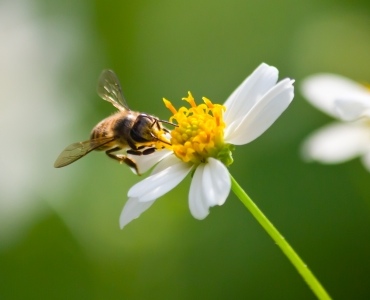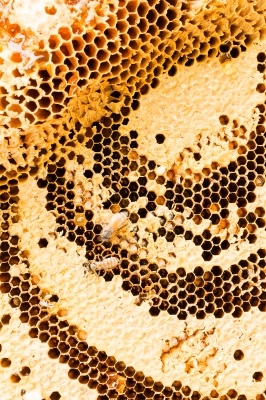
Buzz-worthy commercial beekeeping program launches in B.C.
Food in Canada
Business Operations Processing Bake & Snack Food Beverages Fruit & VegetablesB.C.'s first commercial beekeeping program couldn't come at a better time – with a shortage of bees, the province's pollination-dependent crops require thousands of bee colonies to thrive

HonVancouver – A university in B.C. is introducing a new program this year – one that is sure to create some buzz in the province and beyond.
The Kwantlen Polytechnic University (KPU) is introducing B.C.’s first commercial beekeeping program.
 By November 2016, the university will graduate a group of students who will have the skills to work in, manage and grow existing beekeeping operations or establish and grow their own diversified cottage beekeeping business of up to 300 hives.
By November 2016, the university will graduate a group of students who will have the skills to work in, manage and grow existing beekeeping operations or establish and grow their own diversified cottage beekeeping business of up to 300 hives.
With the shortage of bees in B.C., the university is hoping the program will bolster the industry. The students will have the training to help meet the province’s growing pollination demands, says Jim Pelton, executive director of Continuing and Professional Studies at KPU.
In B.C., pollination-dependent crops comprise an increasing portion of the B.C. agricultural landscape. Honeybee pollination is responsible for more than $200 million per year in agricultural production.
In fact, based on three hives per acre, the province’s 20,000 acres of blueberry farms alone require 60,000 bee colonies for pollination. With only 45,000 commercial bee colonies in B.C., these farms import colonies from Alberta to meet demand.
The 16 initial graduates of KPU’s program could increase B.C.’s honey production by $250,000 per year while supporting more than $6 million in agricultural production, even if they just worked part-time managing small 50-colony operations.
And those figures would gradually expand, notes Pelton, as KPU’s beekeeping program is forecast to grow from 16 students per year in each of its first three years, to 24 students per year after that.
John Gibeau, president of the Honeybee Centre in Cloverdale, B.C., helped develop the program outline and will be part of the advisory committee of apiculture industry partners who are guiding curriculum development in preparation for the first student cohort in January. The curriculum will include a work experience practicum, where students can gain a real-world perspective of the industry.
In a release on the province’s Ministry of Agriculture website, Gibeau, who has some 45 years experience as a beekeeper, calls the program a “sweet deal” because it sets up grads for family-supporting careers, plus includes a five-month paid practicum equivalent to a trades apprenticeship.
Then there is the profession itself, says Gibeau. He estimates a family can bring in revenue of about $100,000 a year and work until retirement.
From a market perspective, Gibeau says honey continues to gain popularity as the healthiest sweetener, driving worldwide demand and sending prices soaring. Gibeau’s Honeybee Centre offers three-day hobbyist courses and has taught just under 1,000 people over the years, but less than a handful of those hobbyists have gone on to become commercial beekeepers.
Students in the KPU program will receive instruction in beehive care, bee disease management, bee botany, integrated pest management, livestock production and colony management, food safety, processing, packaging and marketing, and bee business planning, management and growth.
For more information, visit www.kpu.ca.
Honeybee and daisy image courtesy of zirconicusso at FreeDigitalPhotos.net.
The Honeycomb and bees image is courtesy of satit_srihin at FreeDigitalPhotos.net
Print this page